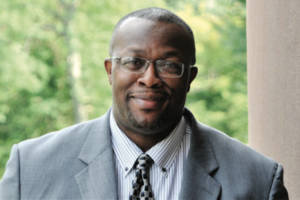Asnuntuck Community College extends an invite to the QVCC and local community to participate in their Breaking Chains Speaker Series. On Wednesday, February 23 from 5:00-6:00pm, join Rev. Maurice S. Porter for a discussion on Social Injustice.
Join the conversation on 2/23 beginning around 5:00pm at https://ctedu.webex.com/ctedu/j.php?MTID=m9ad90f16db29f614b812b33fc408b254
About Rev. Maurice S. Porter:
Born the heir of an opulent preaching legacy, Rev. Maurice S. Porter represents the fifth generation of Christian ministers in his family. Vastly becoming respected as an international hope agent, he is a husband, father, preacher, pastor, and friend to many. He is known for his oratorical excellence and practical approach to both biblical and societal matters consistently merging his spiritual convictions with his personal knowledge and experiences. He is formally educated in the best of universities and thoroughly experienced in the most diverse of contexts. Most notably, Maurice Porter is the Founder and Pastor of Impact Church located in Hartford, CT.

